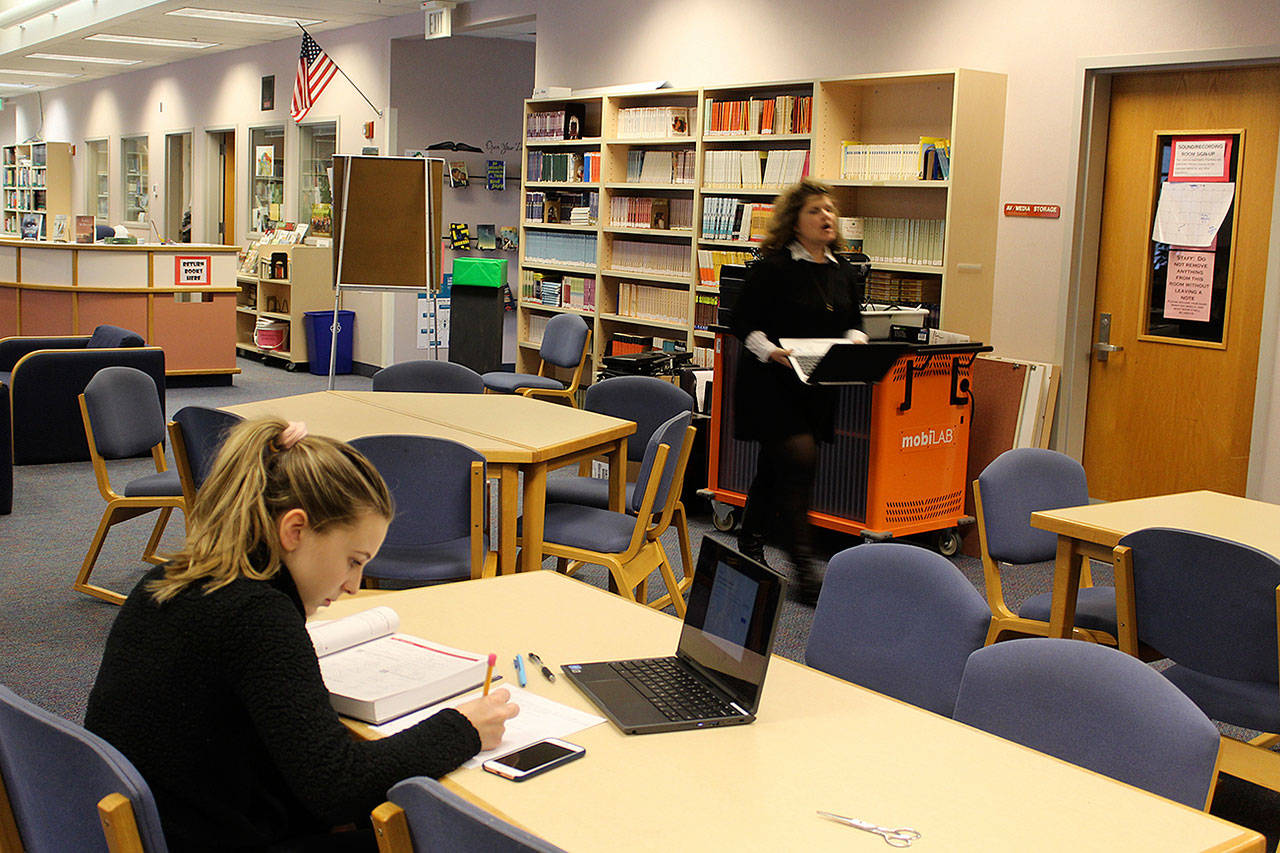South Whidbey residents overwhelmingly approved the extension of two levies that pay for programs, technology and capital improvements for the South Whidbey School District.
The replacement levy for educational programs and operations passed with 72 percent of the vote while the replacement levy for technology, capital improvements and safety passed by 70 percent.
The Island County Office of Elections counted 5,764 ballots, about 42 percent of 13,311 registered voters.
Jo Moccia, superintendent of South Whidbey School District, commented that the turnout was high considering it was a special election with a deadline occurring during a snow-laden week.
“The district is very appreciative of the support of the community regarding the approval of the two levies,” she said.
“The vote on both levies was approximately 70 percent ‘yes.’ This is a very positive message from our community.”
The educational programs and operations levy is a replacement of the maintenance and operations levy that was approved by the voters in February 2016 and expires at the end of this year.
Money from this levy helps maintain class size, programs and services and funds the extra costs associated with food service, special education and bus service that are not covered by the state.
The technology, capital improvements and safety levy is a replacement of the capital projects levy approved by voters six years ago.
It provides $2 million per year to fund ongoing technology efforts, deferred maintenance and other capital improvements throughout the district.
Past capital projects completed with levy funds include replacing a leaking glass roof with a solid roof over the atrium of South Whidbey High School, replacing the high school’s outdated rooftop HVAC systems with more efficient heating and cooling equipment and improvements to the waste treatment system.
Levy money also provided enough computing devices to help overcome any “digital divide” among the mix of about 1,300 students.
The district’s technology department purchased 1,300 Chromebooks, 60 science laptops and 300 iPads over a four-year period.
The laptops and other devices are checked out in classrooms and not taken home. Each student is given an account that is accessible at school and home, explained Sue Ann Brewer, technical specialist.
“It really is exceptional there’s this kind of technological access in such a small district,” Brewer said.
“It’s puts South Whidbey students on an even playing field.”



